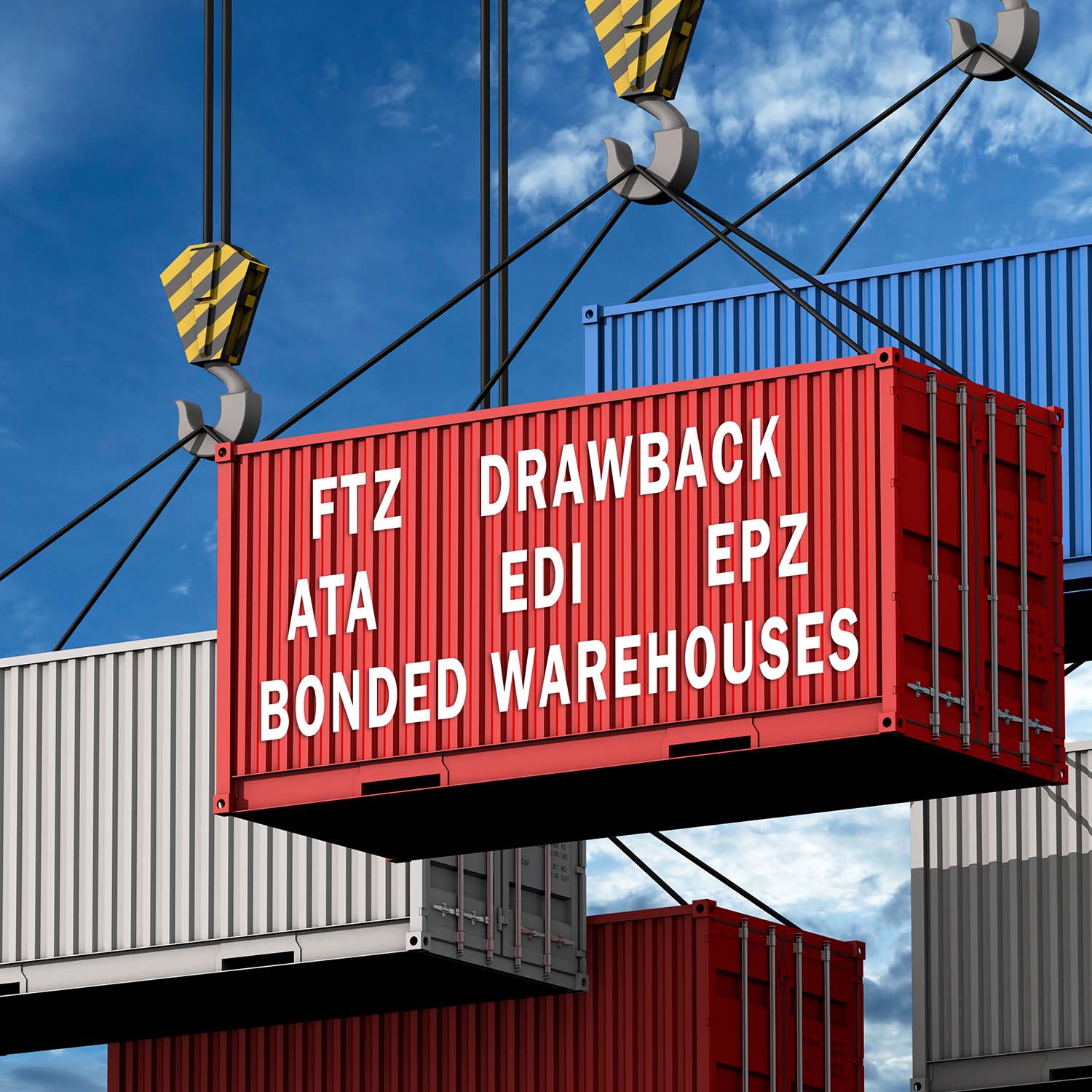Export: Special Provisions
Export Promotion
Export Promotion Capital Goods (EPCG) Scheme
The scheme allows import at five percent customs duty of capital goods, including computer software systems, for preproduction, production, and postproduction. The beneficiary is subject to an export obligation equivalent to eight times the duty saved on capital goods imported under the EPCG scheme. This obligation needs to be fulfilled over a period of eight years reckoned from the date of issuance of license. Agricultural products, and their value-added variants, destined for postproduction export, are allowed import duty-free.
Special Schemes for the Manufacture of Export Goods
Units undertaking to export their entire production of goods and services (except permissible sales in the Domestic Tariff Area or DTA), may be set up under the following schemes for the manufacture of goods:
- Export Oriented Unit (EOU) scheme
- Electronic Hardware Technology Park (EHTP) scheme
- Software Technology Park (STP) scheme
- Bio-Technology Park scheme
This includes repair, re-making, reconditioning, re-engineering, and rendering of services. Trading units, however, are not covered under these schemes.
Special Economic Zone (SEZ)
A Special Economic Zone (SEZ) unit may import from the Domestic Tariff Area (DTA) without payment of duty. It can procure all types of goods and services, including capital goods, whether new or secondhand, required by it for its activities or in connection therewith. However, any permission required for import under any other law shall be applicable. Goods shall include raw material for making capital goods for use within the unit. The units shall also be permitted to import goods required for the approved activity, including capital goods, free of cost or on loan from clients.
The Free Trade and Warehousing Zones (FTWZ) are a special category of SEZs with a focus on trading and warehousing. Need more info
Protective Measures: Export Duties and Minimum Export Prices
Export Duties
Export duties are levied on a limited number of items, mostly primary commodities or processed agricultural products. Currently, the only products subject to an export tax (at the rate of 10 percent) are goat, sheep, and bovine leathers. Products may also be subject to a minimum export price. The list of products subject to minimum prices includes basmati and non-basmati rice, cotton, and hard and soft cotton waste. Most minimum export prices are specified in dollars on an FOB basis.
Value-Added Tax (VAT)
India has opted for a tax credit method that is similar to Central Value-Added Tax (CENVAT). In simple terms, VAT is a multipoint levy on each of the entities in the supply chain with the facility of set-off of input tax; that is, the tax paid at the stage of purchase of goods by a trader and on purchase of raw materials by a manufacturer. Only the value addition in the hands of each of the entities is subject to tax.
Central Excise
Excise duty is a tax on manufacture or production of goods. Excise duty on alcohol, alcoholic preparations, and narcotic substances is collected by the state government and is called State Excise duty. The excise duty on other goods is called Central Excise duty. Sales tax is different from the excise duty, as the former is a tax on the act of sale while the latter is a tax on the act of manufacture or production of goods.
Persons who are required to be registered with the Central Excise department under specified conditions are as follows:
- Every manufacturer of dutiable excisable goods
- First- and second-stage dealers or importers desiring to issue invoices subject to CENVAT
- Persons holding bonded warehouses for storing non-duty paid goods
- Persons who obtain excisable goods for availing end-use based exemption
EOUs having a status holder certificate are eligible for a Fast Track Clearance Procedure, and such units are exempt from examination. However, the Jurisdictional Commissioner of Customs / Central Excise may examine consignments at the unit’s place on a random basis.
The following categories of persons need not obtain Central Excise registration under specified conditions:
- Manufacturers of goods that are chargeable to nil rate of duty or are fully exempt
- Small Scale Industries (SSI) manufacturers having annual turnover of below 9,000,000 Indian rupees
- Job workers of ready-made garments if the principal manufacturer undertakes to discharge the duty liability
- Approved/licensed units in Export Processing Zones, Special Economic Zones, and 100% Export Oriented Units.
Transshipment of Goods
Goods imported in any customs station can be transshipped without payment of duty. Transshipment means transfer from one conveyance to another. Such transshipment may be to any major port or airport in India. The goods can be transshipped to any other customs station in India. The transshipment is done only if the customs officer is satisfied that the goods are intended for transshipment to any customs station. The facility is available at all customs ports and Inland Container Depots (ICDs).
The Import Manifest or Import Report should specify the goods that need to be transshipped and a Bill of Transshipment should be submitted to the customs officer. A "Declaration of Transshipment" shall be submitted instead of a "Bill of Transshipment" if goods are being transshipped under an international treaty or bilateral agreement between the government of India and the government of a foreign country.
Note: The above information is subject to change. Importers and exporters are advised to obtain the most current information from a customs broker, freight forwarder, logistics professional, or the local customs authorities.
Article written for World Trade Press by Taylor Holloran, Jennifer Goheen, and Nina Bellucci.
Copyright © 1993—2025 World Trade Press. All rights reserved.

 India
India 